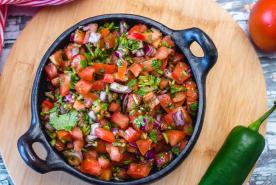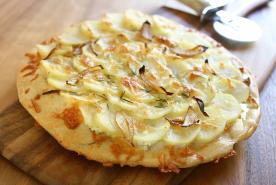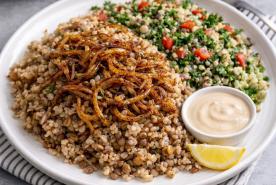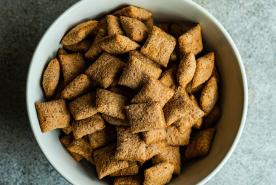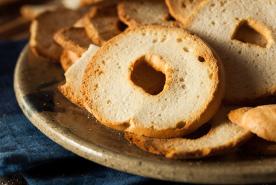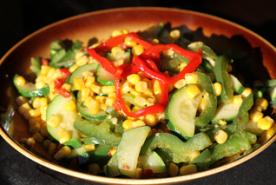Eggs provide high-quality protein and essential nutrients. They’re low in sodium and potassium but contain phosphorus. Safe to eat with kidney disease; consult your dietitian.
For a long time, eggs had a bad reputation due to cholesterol, which past studies had strongly linked to heart disease. However, recent studies have shown that the link between cholesterol in the diet and cholesterol in the blood is weak. Moreover, studies have shown that eggs can be a healthy part of your diet.
Why are eggs a superfood?
- They are a great source of high-quality protein and contain all 9 essential amino acids.
- They contain many vitamins and minerals, including vitamins A, D, E, K, folate, selenium, and B vitamins, and choline, a type of fat that is key for proper cell function.
- Eggs can be eaten many ways: scrambled, poached, hard boiled, or in an omelet; as an egg salad sandwich or on a salad; deviled or added to casseroles, meatloaf, or crab cakes as a binder and to increase the protein.
Eggs and Kidney Disease
- CKD/Transplant
- Eggs are a good source of animal protein and phosphorus, which you may need to limit in CKD. Ask your kidney dietitian how many eggs are safe to eat.
- Eggs are low in sodium and potassium which may be helpful.
- Eating a raw egg or a runny yolk puts you at risk of getting a food borne illness. It is best to eat only eggs with a cooked yolk, especially if you have had a transplant
- Hemodialysis (3 times/week)
- Your body needs extra protein if you are on dialysis. Eggs can be a great source of high-quality protein. But they do contain some phosphorus. Ask your kidney dietitian how to safely include eggs in your diet.
- Daily Home and Nocturnal Hemodialysis/Peritoneal Dialysis
- You need even more protein if you are getting daily dialysis. Eggs can be a great source of high-quality protein. But they do contain some phosphorus. Ask your kidney dietitian how many eggs are safe to eat
- Kidney Stones
- Eating eggs will not have an effect on forming kidney stones.
Egg Muffins (makes 8 muffins)
Ingredients
- 1 cup bell peppers (red, yellow, and orange)
- 1 cup onion
- 1/2 pound ground pork
- 1/4 teaspoon poultry seasoning
- 1/4 teaspoon garlic powder
- 1/4 teaspoon onion powder
- 1/2 teaspoon Mrs. Dash® herb seasoning blend
- 8 large eggs
- 2 tablespoons milk or milk substitute
- 1/4 teaspoon salt (optional)
Preparation
1. Preheat oven to 350° F and spray a regular size muffin tin with cooking spray.
2. Finely dice bell peppers and onion.
3. In a bowl combine pork, poultry seasoning, garlic powder, onion powder and Mrs. Dash seasoning to make sausage.
4. In a nonstick skillet, cook sausage crumbles until done; drain.
5. Beat eggs together with the milk or milk substitute and salt.
6. Add the sausage crumbles and vegetables; mix.
7. Pour egg mixture into prepared muffin tins, leaving space for muffins to rise. Bake for 18 to 22 minutes.
Helpful hints
- Freeze extra muffins and reheat for 30-40 seconds in the microwave for a quick breakfast entree.
Nutrients per serving (serving size = 1 muffin)
Calories 154
Protein 12 g
Carbohydrates 3 g
Fat 10 g
Cholesterol 230 mg
Sodium 155 mg
Potassium 200 mg
Phosphorus 154 mg
Calcium 37 mg
Fiber 0.5 g
Added Sugar 0 g
https://www.davita.com/diet-nutrition/recipes/breakfast-brunch/egg-muffins
This content is provided for informational use only and is not intended as medical advice or as a substitute for the medical advice of a healthcare professional.









